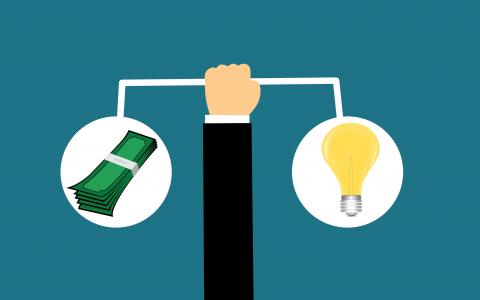
(TheStreet) - The crisis of confidence in banks will soon enter its third quarter.
This crisis of defiance, the most serious since the Great Financial Crisis of 2008 caused by subprime mortgages, gives no signs that it will calm down anytime soon.
The list of victims in less than two weeks includes two very important banks.
There's Silicon Valley Bank, the bank that started it all. SVB was a central bank in the ecosystem of tech and biotech startups, as well as small businesses. The bank bet on interest rates when they were low by buying bonds. Treasury bonds are among the least risky assets, because the probability that the United States will default is extremely low.
But the problem was that SVB (SIVB) - Get Free Report had not protected itself against the risk that interest rates could go up, which happened from the second half of 2021. Basically, the bank did not anticipate that the market conditions could change, a mistake that caused a net loss of $1.8 billion in its bond portfolio.
This announcement of this loss, accompanied by the fact that SVB wanted to raise $2.25 billion to honor the cash withdrawals of its customers drawing on their deposits, caused a run on the bank.
Urgent to End the Crisis
Given that municipal bonds and Treasury bonds were the assets that offered some of the best returns during the period of low interest rates and federal government stimulus, investors deduce that most regional banks made the same bets as SVB. They believe that the risk of contagion of SVB’s problems is high.
The consequence of this generalized distrust has therefore materialized by the sale of bank shares and the massive withdrawals of deposits in mid-sized banks and banks deemed to be fragile.
In Europe, Credit Suisse, a Swiss banking giant shaken by scandals, found itself caught in this turmoil. The firm recorded about $10 billion of outflows in one day last week, prompting Swiss authorities to force rival UBS to buy it for a modest sum of $3.24 billion on Mar. 19. This deal was a real disaster for some of Credit Suisse’s investors and bondholders who were completely wiped out.
All eyes are once again on the US regional banks, and particularly First Republic Bank, which is also experiencing withdrawals by its customers. This bank run, analysts say, is due to the fact that customers with more than $250,000 in their accounts are afraid of losing everything in the event of a failure, because the Federal Deposit Insurance Corporation (FDIC) only guarantees deposits up to the federal limit of $250,000.
This limit, they argue, is what also causes bank runs in other regional banks. However, these firms are important for commercial and industrial lending as well as for the financing of residential real estate projects.
It is therefore urgent to end this crisis, in order to prevent these banks from stopping financing the economy, by refusing to lend money to businesses and consumers who need it for their operations.
For Elon Musk, the CEO of Tesla (TSLA) - Get Free Report and founder of SpaceX, there is no other solution than the guarantee by the federal government of all deposits. The FDIC must do away with the $250,000 limit, advocates the billionaire, as the only way to stop bank runs.
Guarantee All Deposits
That's what he just said in a Twitter thread.
"US officials are studying ways to let the FDIC temporarily insure deposits beyond the current $250,000 cap on most accounts, without having to get approval from Congress," a Twitter user posted on Mar. 20.
Which Musk immediately responded by saying: "Absolutely required to stop bank runs."
Two days earlier, the billionaire, who is involved in five companies -- Tesla, Twitter, SpaceX, The Boring Company and Neuralink -- had already proposed the idea but it went unnoticed. He felt the federal agency had to do it "right now."
"FDIC needs to change to unlimited coverage to stop bank runs and Treasury needs to stop issuing ridiculously high yield bills, such that it makes no sense to have money in a low interest rate bank 'savings' account," the global CEO explained on Mar. 18. "Right now."
The proposal comes after extraordinary measures announced by regulators regarding SVB depositors failed to restore calm. The government has guaranteed all deposits from the customers of SVB and those of Signature Bank in New York, another bank shut down by regulators on Mar. 12, after an earlier bank run.
The Federal Reserve has also created a new facility to lend money to banks that need it, in order to avoid a liquidity crisis.
According to Bloomberg News, US officials are studying ways to allow the FDIC to cover all US bank deposits without having to obtain a formal approval from Congress.
By Luc Olinga



